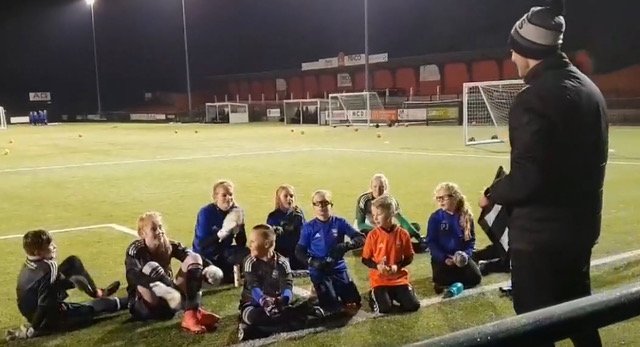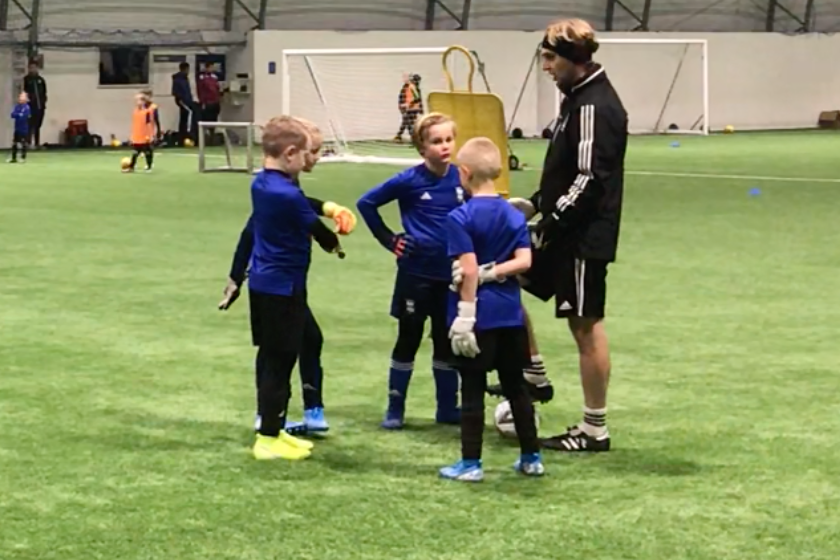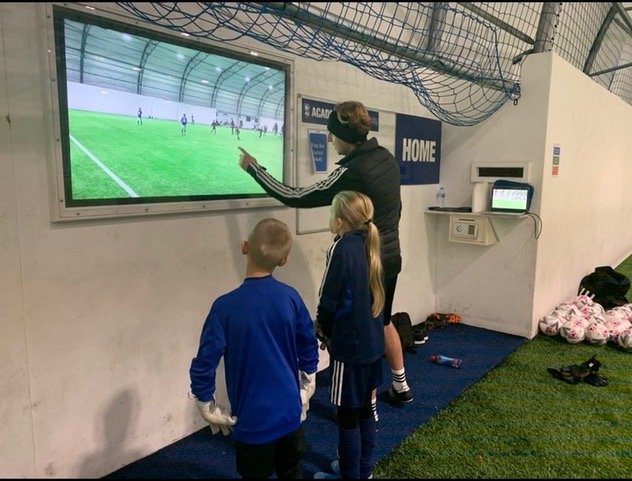
In a normal week, Birmingham City Girls goalkeeping coach Andy Elleray regularly clocked up 10 training sessions and 400 miles, writes Chris Maguire.
The 32-year-old, who is also a best-selling author, works with Birmingham City Girls Regional Talent Club (aged 9-16); Girls Academy (aged 16-19); Boys Academy (aged 9-16); as well as England Girls Talent Pathway.
He’s previously coached at Chelsea and Liverpool and has so far worked with eight goalkeepers who’ve gone on to win international honours.
Life was good – and then along came coronavirus and his work evaporated overnight.
Elleray isn’t looking for sympathy but because he’s self-employed and on a ‘contract for services’, he’s one of thousands of coaches who don’t get paid when they’re not coaching.
“The first thing to say is my heart goes out to the people who have died or contracted Covid-19,” he said. “However difficult my situation is it’s nothing compared to theirs and I’m in awe of the heroic NHS staff who are risking their lives on a daily basis treating patients.”
Nonetheless life is not easy financially for self-employed coaches like Elleray. “With no sessions and matches I’ve lost pretty much all my income at the moment,” he said from his home in Worcester.
“As coaches, we get paid per session so it’s effectively a contract of services. This is the same across many academies and centres etc.
“I’ve had a lot of conversations with many coaches, and the vast majority are in the same boat and are worried for the next few months. Many are on the brink. A lot are having to rethink their situations and hopefully the industry will make some changes to help support its workforce.
“I know coaches who run goalkeeping schools and rely on this income. We are trying to do activities remotely, but there’s only so much you can do. I think the effects (of Covid-19) won’t be seen for a few months if the lockdown continues.
“Hopefully, post Covid-19, football can think about what different contracts look like for part time and self-employed staff to protect them financially.
“There are lots of other coaches out there like me but I’m one of the lucky ones. My wife works and the girls’ side at Birmingham City have put in place a structure where we are being paid for work done remotely to help support the players, which has been great.”

Elleray has been staying in touch remotely with his young goalkeepers but admits it’s the people he misses the most.
“Zoom meetings are great but there’s no substitute for coaching on the grass,” he said. “I think once it’s safe to do so, I’d like to gradually get back out to train and hopefully arrange sessions. The youth seasons have now been postponed. I think we need a decision on the WSL and Football Leagues soon, so everyone knows what’s going on.”
Before becoming a coach Elleray played at a good amateur/semi-professional level but the highlight was playing for the England and Great Britain Blind Football teams as the sighted goalkeeper. “I achieved my dream of playing football for my country,” he said.
He began coaching at the age of 16, starting at grassroots then building his experience and working his way up the football pyramid.
“I classify myself as a goalkeeping specialist,” he said. “This would encompass coaching, performance analysis, building development programmes, conducting research and writing literature.”
Between 2010-2013 he worked at Chelsea Academy within the youth teams. At Liverpool, where he did his Masters degree work placement in 2011, he worked with the U18-U23 age groups.

As well as his Birmingham commitments, Elleray also runs private sessions under the banner of the ‘Ultimate GK’ and is a big advocate of technology.
“I use various forms of multimedia to support what I do on the pitch,” he said. “This includes videos of sessions and matches to analyse and reflect, ways to build player presentations to gauge understanding, using phone apps to watch and share footage and also statistical data to help support performance.
“I’ve also written five best-selling books totally on goalkeeping. My first was in 2013 and they look at such areas as psychology, physiology, video analysis, female players and loads of specific training practices.
“During the lockdown I’ve taken the opportunity to start writing my next two books but it’s really made me value the roles I have and the players I work with for sure.”

